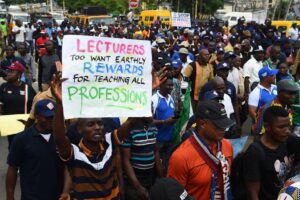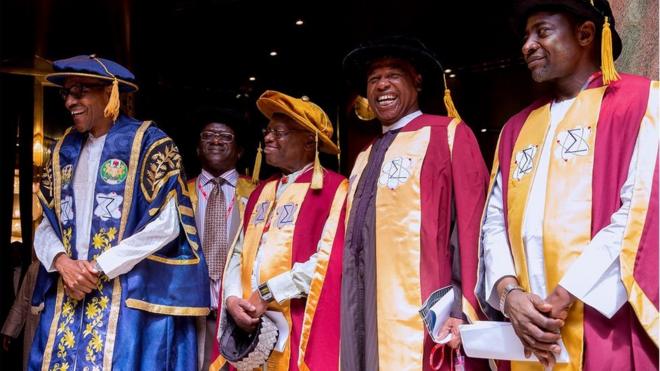As the first anniversary of President Bola Tinubu’s administration approaches, concerns over the competence of the leadership at the Federal Ministry of Education have been fervently voiced by lecturers and students in Nigeria. The critiques come amidst commemorations of Democracy Day, a national public holiday celebrating the restoration of democracy in 1999.
Prof. Francis Egbokhare, a distinguished scholar at the University of Ibadan, expressed strong reservations about the educational leadership appointed by the government, warning that this could lead to the collapse of public universities within three years due to systemic issues such as overwork and lack of supervision.

He highlighted the reversal of certain policies, like the Integrated Payroll and Personnel Information System (IPPIS), and the government’s efforts to address the fallout from previous strikes. However, he emphasized that the delays in constituting university governing councils represented a significant oversight, stripping universities of their administrative capacity.
Similarly, Prof. Emmanuel Osodeke, the President of the Academic Staff Union of Universities (ASUU), raised concerns about the hasty and, in his view, unqualified appointments to the governing councils, emphasizing the need for stakeholder involvement in the appointment process to ensure appointees prioritize educational development over personal gain.
Olatunji Emmanuel, a postgraduate student from the University of Ibadan, highlighted that despite a budget increase, the education budget still fell far below UNESCO’s recommendation of 26% of the national budget. This shortfall has affected resources, infrastructure, and overall education quality. Emmanuel also pointed out the security threats posed by student abductions and school attacks, which have significantly impacted education accessibility and safety.
Furthermore, inconsistent electricity supply in educational institutions, along with rising fuel prices and transportation costs, has exacerbated financial pressures on students, affecting their ability to study and attend classes. Oluwafemi Oluwanisola, a 300-level student at Adekunle Ajasin University, Akungba Akoko, Ondo State, added that the economic downturn has raised tuition fees, transportation costs, and living expenses, making it difficult for many parents to afford school fees.
Despite these challenges, both Oluwanisola and Emmanuel commended the student loan initiative, acknowledging it as a positive step towards addressing some of the financial barriers faced by students. However, they stressed that more comprehensive measures are needed to address the root causes of the issues plaguing Nigeria’s education sector.
As lecturers and students continue to call for significant reforms, it remains to be seen how the Tinubu administration will respond to these pressing concerns in the coming years. The criticisms underscore the urgency of addressing systemic issues within the education sector to ensure the delivery of quality education and a conducive learning environment for students across Nigeria.




